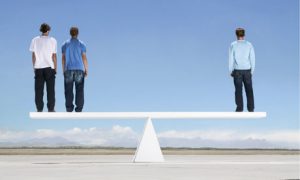 Equality is a theory best expressed by the enlightenment thinkers but as a theory, it fails to be realized effectively in practical form. In this article, the concept of equality is channelled to explore Kurt Vonnegut’s Harrison Bergeron, Bernard Williams’ The Idea of Equality, and Barbara Ehrenreich’s Nickeled and Dimed. The evidence will suggest that the concept of equality should not be the attempt to combat and equalize human uniqueness nor should inequality in economic, political and social spheres be supported. The theory that all humans are equal is flawed in practice since people are unique and unavoidably unequal in terms of social, cognitive, economic and political terms. Conversely, individuals should be treated equally regardless, as much as practically possible, in areas of respect, rights, and opportunities, in order to achieve maximum social mobility and thus create a meritocratic society.
Equality is a theory best expressed by the enlightenment thinkers but as a theory, it fails to be realized effectively in practical form. In this article, the concept of equality is channelled to explore Kurt Vonnegut’s Harrison Bergeron, Bernard Williams’ The Idea of Equality, and Barbara Ehrenreich’s Nickeled and Dimed. The evidence will suggest that the concept of equality should not be the attempt to combat and equalize human uniqueness nor should inequality in economic, political and social spheres be supported. The theory that all humans are equal is flawed in practice since people are unique and unavoidably unequal in terms of social, cognitive, economic and political terms. Conversely, individuals should be treated equally regardless, as much as practically possible, in areas of respect, rights, and opportunities, in order to achieve maximum social mobility and thus create a meritocratic society.
 One of the basic concepts (re)developed in the 18th Century is the idea of equality. Its basic idea, summed up in The Declaration of Independence by Thomas Jefferson, was that “all men are created equal” (Perspectives, 381) in the eyes of God. However, in truth, theory fails to effectively be transferred into practice. Ironically, in this case, Thomas Jefferson was both a liberal theorist and a slave-owner. In the historical context of the time, he was greatly influenced by both liberalism and the unavoidable greed involved in capitalism. Of course, today slavery has been abolished but inequalities still remain due to capitalism and economic oppression. It is this conflict between capitalism and the basic liberal philosophy of equality that has plagued the modern world to this day and capitalism which attempts to measure value/price/cost, in part, is at the root of inequality.
One of the basic concepts (re)developed in the 18th Century is the idea of equality. Its basic idea, summed up in The Declaration of Independence by Thomas Jefferson, was that “all men are created equal” (Perspectives, 381) in the eyes of God. However, in truth, theory fails to effectively be transferred into practice. Ironically, in this case, Thomas Jefferson was both a liberal theorist and a slave-owner. In the historical context of the time, he was greatly influenced by both liberalism and the unavoidable greed involved in capitalism. Of course, today slavery has been abolished but inequalities still remain due to capitalism and economic oppression. It is this conflict between capitalism and the basic liberal philosophy of equality that has plagued the modern world to this day and capitalism which attempts to measure value/price/cost, in part, is at the root of inequality.
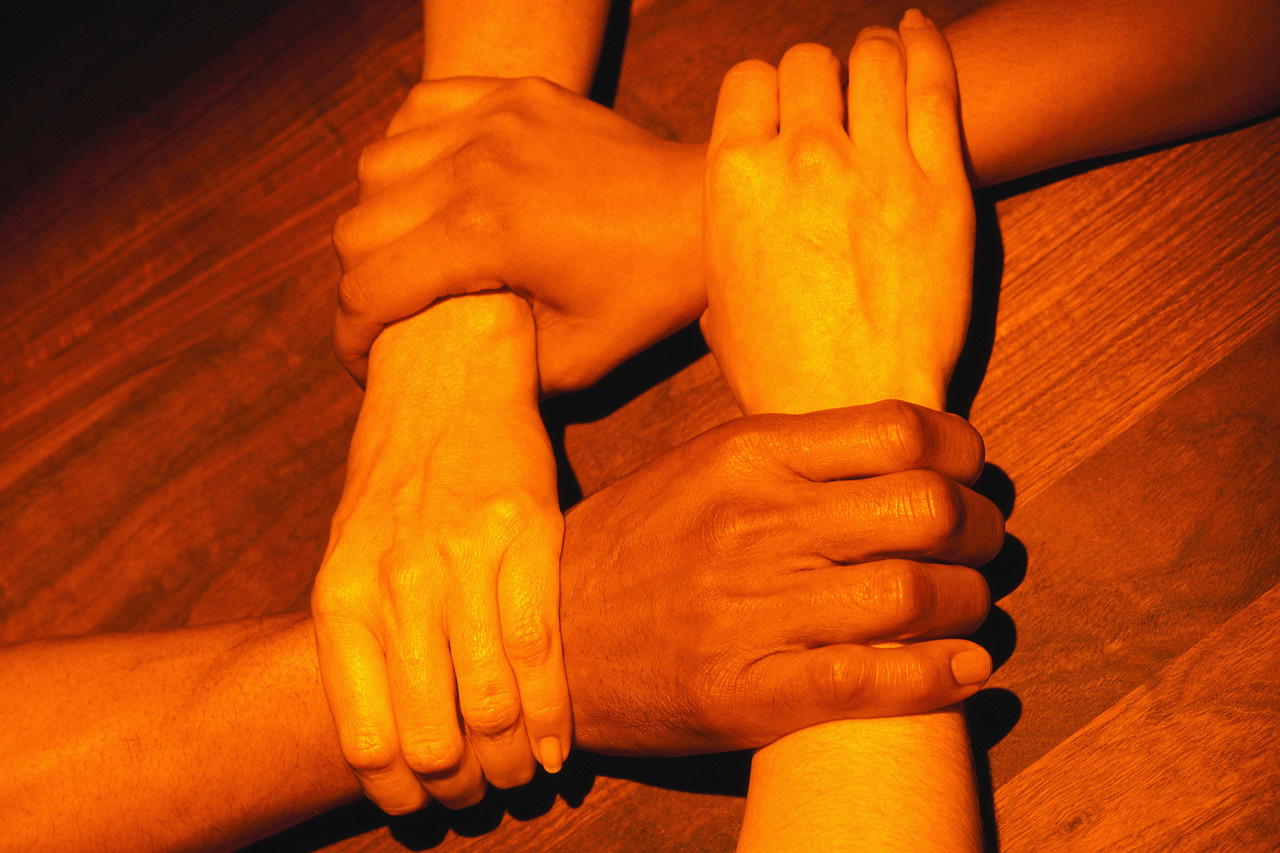 In reality, “to say that all men are equal…is a patent falsehood” (Williams, 465). The theory of equality of all men, later women and non-whites, is unfortunately simply a theory that has been entrenched in law but misappropriated in practice. In the current world ,equality is elusive and impossible to achieve. Interestingly enough, even if it were fully achieved, however, it would be undesirable.
In reality, “to say that all men are equal…is a patent falsehood” (Williams, 465). The theory of equality of all men, later women and non-whites, is unfortunately simply a theory that has been entrenched in law but misappropriated in practice. In the current world ,equality is elusive and impossible to achieve. Interestingly enough, even if it were fully achieved, however, it would be undesirable.
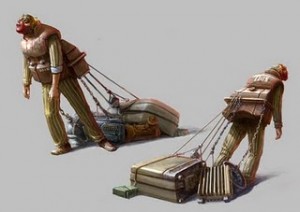 An excellent example of the theory of equality in practice is shown through Kurt Vonnegut’s short story, Harrison Bergeron. The premise of the story is that a government has coerced all people to be equalized. Basic civil rights are completely abused as the characters of George and Hazel are mentally and physically repressed. By making sharp noises disrupting thought, the “handicap radio…Makes [them] all more equal” (Vonnegut, 6). In the end, their son is killed by the Handicapper General while attempting to break through the mould of mediocre equality.
An excellent example of the theory of equality in practice is shown through Kurt Vonnegut’s short story, Harrison Bergeron. The premise of the story is that a government has coerced all people to be equalized. Basic civil rights are completely abused as the characters of George and Hazel are mentally and physically repressed. By making sharp noises disrupting thought, the “handicap radio…Makes [them] all more equal” (Vonnegut, 6). In the end, their son is killed by the Handicapper General while attempting to break through the mould of mediocre equality.
 What Vonnegut’s tale helps illustrate is that the actual implementation of equality, in its purest form, completely fails equal human respect, rights and opportunity. As revealed by the story, the government has forcibly made life completely incapacitating and void of uniqueness. The failure of the theory of equality is apparent, “Nobody [is] smarter. Nobody better looking. Nobody stronger or quicker” (Vonnegut, 6), there is only equally mediocre individuals fulfilling the concept that all humans are equal. This is clearly undesirable and yet it is the embodiment of the theory of equality in practise, where all humans are equalized. If human nature is bound in a theory that does not allow for proper human nature to grow, the theory both fails and is undesirable in practise. On a moral and rational standpoint actual equality is not a desirable theory. What needs to be realized, it is argued, is that full effectiveness of any theory of equality is not desired; instead improvement on society’s current understanding of equality must be made.
What Vonnegut’s tale helps illustrate is that the actual implementation of equality, in its purest form, completely fails equal human respect, rights and opportunity. As revealed by the story, the government has forcibly made life completely incapacitating and void of uniqueness. The failure of the theory of equality is apparent, “Nobody [is] smarter. Nobody better looking. Nobody stronger or quicker” (Vonnegut, 6), there is only equally mediocre individuals fulfilling the concept that all humans are equal. This is clearly undesirable and yet it is the embodiment of the theory of equality in practise, where all humans are equalized. If human nature is bound in a theory that does not allow for proper human nature to grow, the theory both fails and is undesirable in practise. On a moral and rational standpoint actual equality is not a desirable theory. What needs to be realized, it is argued, is that full effectiveness of any theory of equality is not desired; instead improvement on society’s current understanding of equality must be made.
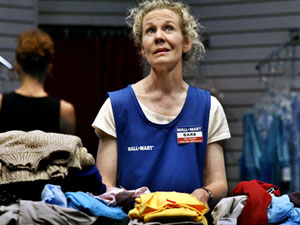 In the realistic and practical world, the disturbing reality of economic, social and political oppression is ubiquitous but for the purposes here, the reality can be looked at through Barbara Ehrenreich’s, Nickeled and Dimed. In this case, the theory of equality fails to protect the worker. The poor lower class suffer the difficulties of thank-less and virtually reward-less work, where the cost of living consumes most of their paycheques. Severe economic inequalities where “wages for people near the bottom of the labour market remain fairly flat, even ‘stagnant’” (Ehrenreich, 201) and political inequalities where Ehrenreich’s “purse could be searched by management at any time” (Enrenreich, 208), hinder the equality of an individual in the private job sector or the corporate sphere. Her basic civil rights seem to be obsolete according to the corporate agenda. She states the “Drug testing is another routine indignity…it is degrading to have to perform it at the command of some powerful other” (Ehrenreich, 209). Her social position is subordinate and there is no real respect for the minimum-wage worker. Ehrenreich’s book serves as an example of the inequality of respect, opportunity and rights of people who are judged to be unequal by economic, social, and political measurements. Clearly, there is much improvement on equality needed in society and her problems are best addressed by Williams’ analytical interpretations of the idea of equality.
In the realistic and practical world, the disturbing reality of economic, social and political oppression is ubiquitous but for the purposes here, the reality can be looked at through Barbara Ehrenreich’s, Nickeled and Dimed. In this case, the theory of equality fails to protect the worker. The poor lower class suffer the difficulties of thank-less and virtually reward-less work, where the cost of living consumes most of their paycheques. Severe economic inequalities where “wages for people near the bottom of the labour market remain fairly flat, even ‘stagnant’” (Ehrenreich, 201) and political inequalities where Ehrenreich’s “purse could be searched by management at any time” (Enrenreich, 208), hinder the equality of an individual in the private job sector or the corporate sphere. Her basic civil rights seem to be obsolete according to the corporate agenda. She states the “Drug testing is another routine indignity…it is degrading to have to perform it at the command of some powerful other” (Ehrenreich, 209). Her social position is subordinate and there is no real respect for the minimum-wage worker. Ehrenreich’s book serves as an example of the inequality of respect, opportunity and rights of people who are judged to be unequal by economic, social, and political measurements. Clearly, there is much improvement on equality needed in society and her problems are best addressed by Williams’ analytical interpretations of the idea of equality.
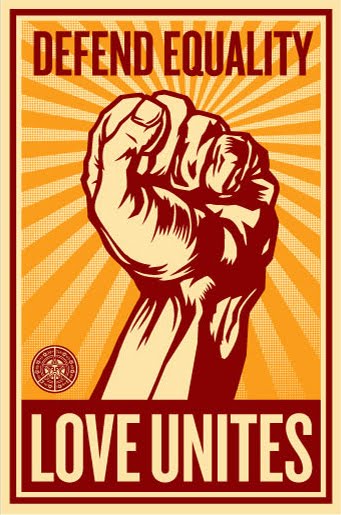 Since equality has no weight when seen strictly as common humanity, according to Williams, it still exists that people should be equal in other, more practical, ways. Williams’ detailed argument emerges from the idea that humans should be equal in “political principles and aims” (465, Williams). It is argued, for overall happiness and harmony in the world, that different people should be treated equally regardless of finance, political or social arrangements. Naturally, individuals are not equal in their abilities or merit, after all, capitalistic economies, which are entrenched in most modern societies, place certain abilities or merits above others. Economics makes equality difficult because of its value system, which is antagonist to the goals of equality. People should be equal relatively speaking but cannot be perfectly or fully equal because it is undesirable.
Since equality has no weight when seen strictly as common humanity, according to Williams, it still exists that people should be equal in other, more practical, ways. Williams’ detailed argument emerges from the idea that humans should be equal in “political principles and aims” (465, Williams). It is argued, for overall happiness and harmony in the world, that different people should be treated equally regardless of finance, political or social arrangements. Naturally, individuals are not equal in their abilities or merit, after all, capitalistic economies, which are entrenched in most modern societies, place certain abilities or merits above others. Economics makes equality difficult because of its value system, which is antagonist to the goals of equality. People should be equal relatively speaking but cannot be perfectly or fully equal because it is undesirable.
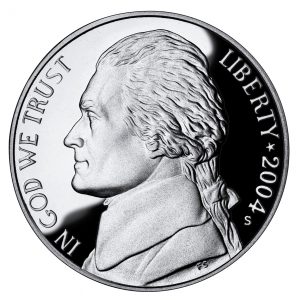 In Williams’ essay The Idea of Equality, he attempts to address the problems of inequalities with two theories of respect and opportunity. There is a lack of equality of respect and equality of opportunity in society. It is imperative that better treatment be given for people in regard to equal respect, opportunity and in the sense of equality of rights. Any violation of the equality of rights is of the most appalling abuses of humanity, which must be alleviated. There also needs to a balance or harmony between equality of respect and equality of opportunity, according to Williams, in order to facilitate a better understanding in the public eye of the statement that all humans are equal.
In Williams’ essay The Idea of Equality, he attempts to address the problems of inequalities with two theories of respect and opportunity. There is a lack of equality of respect and equality of opportunity in society. It is imperative that better treatment be given for people in regard to equal respect, opportunity and in the sense of equality of rights. Any violation of the equality of rights is of the most appalling abuses of humanity, which must be alleviated. There also needs to a balance or harmony between equality of respect and equality of opportunity, according to Williams, in order to facilitate a better understanding in the public eye of the statement that all humans are equal.
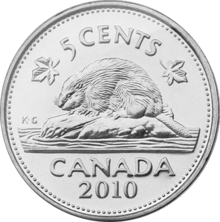 Williams’ argument for equality of opportunity says that in order to have equality, one must exist under the same conditions. It could never be applied in its fullest form, neither would we seek it to be. Obviously, humans are not created equal in the sense that some people become Tennis Pros while others work at Sportsmart for a living. Disparity in opportunity is a natural result of scarcity in demand or supply of that opportunity. What should be expected of society and the government is an attempt to increase opportunity in a very real sense but not to the level of inhuman constructs. Healthcare, for example, should be transparent and equal for all people in society. In education, the same idea applies; education should be distributed amongst the people equally. Humans within the society are competitive by nature and only the government and the affluent can help save the poor.
Williams’ argument for equality of opportunity says that in order to have equality, one must exist under the same conditions. It could never be applied in its fullest form, neither would we seek it to be. Obviously, humans are not created equal in the sense that some people become Tennis Pros while others work at Sportsmart for a living. Disparity in opportunity is a natural result of scarcity in demand or supply of that opportunity. What should be expected of society and the government is an attempt to increase opportunity in a very real sense but not to the level of inhuman constructs. Healthcare, for example, should be transparent and equal for all people in society. In education, the same idea applies; education should be distributed amongst the people equally. Humans within the society are competitive by nature and only the government and the affluent can help save the poor.
 Williams’ equality of respect concept is an ideal that focuses on treatment. Equality of respect is necessary for individuals in defence of the economic, social arrangement and political abuse as illustrate in Ehrenreich’s novel. Government should make an effort to increase the degree of equality of respect in the social sphere. It is impossible to completely remove disrespect, as people value different people unequally, however, an effort should be made to instil this concept. The government and the affluent should step in and realize that under rule of law, all humans deserve equal treatment. The root of the actual problem is capitalism and human nature, once again. One can easily blame greed and materialism for the problems Ehrenheich faces in Nickeled and Dimed. However, it should be the government’s responsibility to equalize, to an extent, economic inequalities. It is the duty of the government and the affluent to help the poor in any way possible to combat the ill affects of society. The equality of respect, equality of opportunity and equality of rights should the top priorities of government and the affluent members of society.
Williams’ equality of respect concept is an ideal that focuses on treatment. Equality of respect is necessary for individuals in defence of the economic, social arrangement and political abuse as illustrate in Ehrenreich’s novel. Government should make an effort to increase the degree of equality of respect in the social sphere. It is impossible to completely remove disrespect, as people value different people unequally, however, an effort should be made to instil this concept. The government and the affluent should step in and realize that under rule of law, all humans deserve equal treatment. The root of the actual problem is capitalism and human nature, once again. One can easily blame greed and materialism for the problems Ehrenheich faces in Nickeled and Dimed. However, it should be the government’s responsibility to equalize, to an extent, economic inequalities. It is the duty of the government and the affluent to help the poor in any way possible to combat the ill affects of society. The equality of respect, equality of opportunity and equality of rights should the top priorities of government and the affluent members of society.
Although the theory of equality, in a literal sense, is not desirable, neither is the opposite where inequality affects ones ability to live happily. The statement “all humans are equal” implies the real notions of equal rights, an attempt to have equality of opportunity, and an attitude of equal respect and worth for all people. Following these guidelines, society would alleviate of the strain described in Nickeled and Dimed while avoiding the extremes of total equality in Vonnegut’s Harrison Bergeron, creating a harmony between complex equalities and equally complex people.
Works Cited
Ehrenreich, Barbara. Nickeled and Dimed: On (Not) Getting By in America. New York: Henry Holt and Company, 2001, pp. 193-221
Jefferson, Thomas. The Declaration of Independence. Perspectives from the Past. James M. Brophy and Steven Epstein eds.W. W. Norton & Company, Inc, 2002, pp. 381-384
Williams, Bernard. “The idea of equality,” Contemporary Moral Philosophy: An Anthology, Robert E. Goodin and Philip Pettit eds. Blackwells, 1997, pp. 465-475
Vonnegut, Kurt. “Harrison Bergeron,” Welcome to the Monkey House. New York: Dell, 1968, pp 6-14


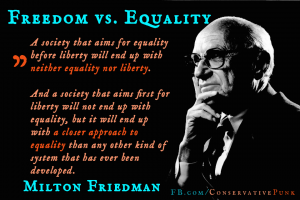
Hello…I arrived at your blog via a Google search “…the impossibility of equality…”
I’ve become interested in the idea of equality later in life. I say “idea” because I’ve never experienced or witnessed equality other than as conceptual examples, or as rumors and hearsay by those who believe that equality is actual, or at least possible. Others seem to believe that equality is actual simply because it is desirable.
I have many problems with equality, not the least of which is the “authorship” of equality, that is, who or what is the author of equality…not the idea, but the actuality, the fact of equality? I guess I’m wondering where did it come from? Jefferson, in the Declaration, seemed to imply that the author was God by his statement of all men being “created” equal and “endowed” by a benevolent Creator; even if Jefferson didn’t himself believe in a Creator-God with a personal stake in humanity, it would have been an appropriate ruse because his Declaration was aimed at royalty who mistakenly believed he ruled by the will of God…so Jefferson’s was a forgivable pretense, tit for tat so to speak.
But, the preponderance of evidence by now, is that we’re not “created” by any purposeful deity; and, its equally obvious that our “creator” — evolution and natural selection from an infinity of mutations — values diversity over equality. (We hold these trues to be self-evident, that all beings have evolved diversely, and that the forces of evolution are amoral and random, endowing us with no special privileges.)
My next problem with equality is simple: Is it ever okay to knowingly promulgate an untruth simply because the concept, in this case equality, is more palatable, or makes us feel better, than does the truth? I have friends who justify religious “faith” and mystical belief with the statement, “Well you have to admit that if a false belief helps a person live a better life, its desirable!” No. I believe a purposeful lie, or purposely believing a lie is always less desirable, more harmful than the truth; believing a lie in order to feel better IS an “opiate” of the people.
The fact is, there is no evidence for equality as a possibility “in the wild” or in the laboratory; short of complete genetic human cloning, there will never be two equal humans and “pretending” it is so by way of legal role-plays and social pretense will not make it so.
I do heartily agree with you that to the extent possible and practical, reasonable effort should be made towards an equality of respect; for me, not so much as a moral imperative, but as a practical matter: Disrespect breeds resentment; resentment breeds conflict and all sorts of unpleasantness, and misuse of resources. Respect, as equally distributed as possible, is simply good business.
If i may suggest this…If you want to know more about how equality could be achieved in a balances sence and not abstract contraversial theories, i’d urge you to read about the history of the islamic government in the times of Umar ibn-al Khattab.
You don’t have to know about the Religion itself or believe in God at all to be able to appreciate this..but i was amazed at the historical facts of that era under his ruling and am sure you will be as well.
Read about the circumstances before the islamic ruling in that part of the world and the amazing transformation that came along with the spread of this religion and the more amazing building of the whole civilization by this man – Umar ibn- al Khattab.
You’ll learn a huge deal about the possabilities of equalities.
I have become facinated with the concept of Equality i see this concept as being an impossibilitly …this is because for something to equal someone will experience inequality as a result..for example the so called equlity of Gay marriage as opposed to traditional marriage and the changing social,spiritual and religious dimensions of traditional social morals… would appreciate input into this topic
Why do you think this way? I grasp the fact you think everyone is different in which we are. You are still looking at the situation from a money point of view. The reason in these equations equality can’t be reached is due to money. In a give and help economy. You would have no need for money. Allowing us all to be a sports star if good enough or a baker or any job we can get. We would be equal in all ways not making any job worse then another. Meaning just cause you are an actress and famous you are no better then the garbage man. If we eliminate money and greed there will be no need for anyone not to be equal to another, Not all humans want to compete some are happy just having a family and love. The others will still be able to compete winning trophies and awards however they will still be equal to all humanity and all living beings! Equality is possible if humanity stops what is being taught in a dog eat dog world. It should be a dog help dog world of self sustainability. This is why we are killing our home. This is why no one can stop the evil corporations. This is why humanity will go extinct!